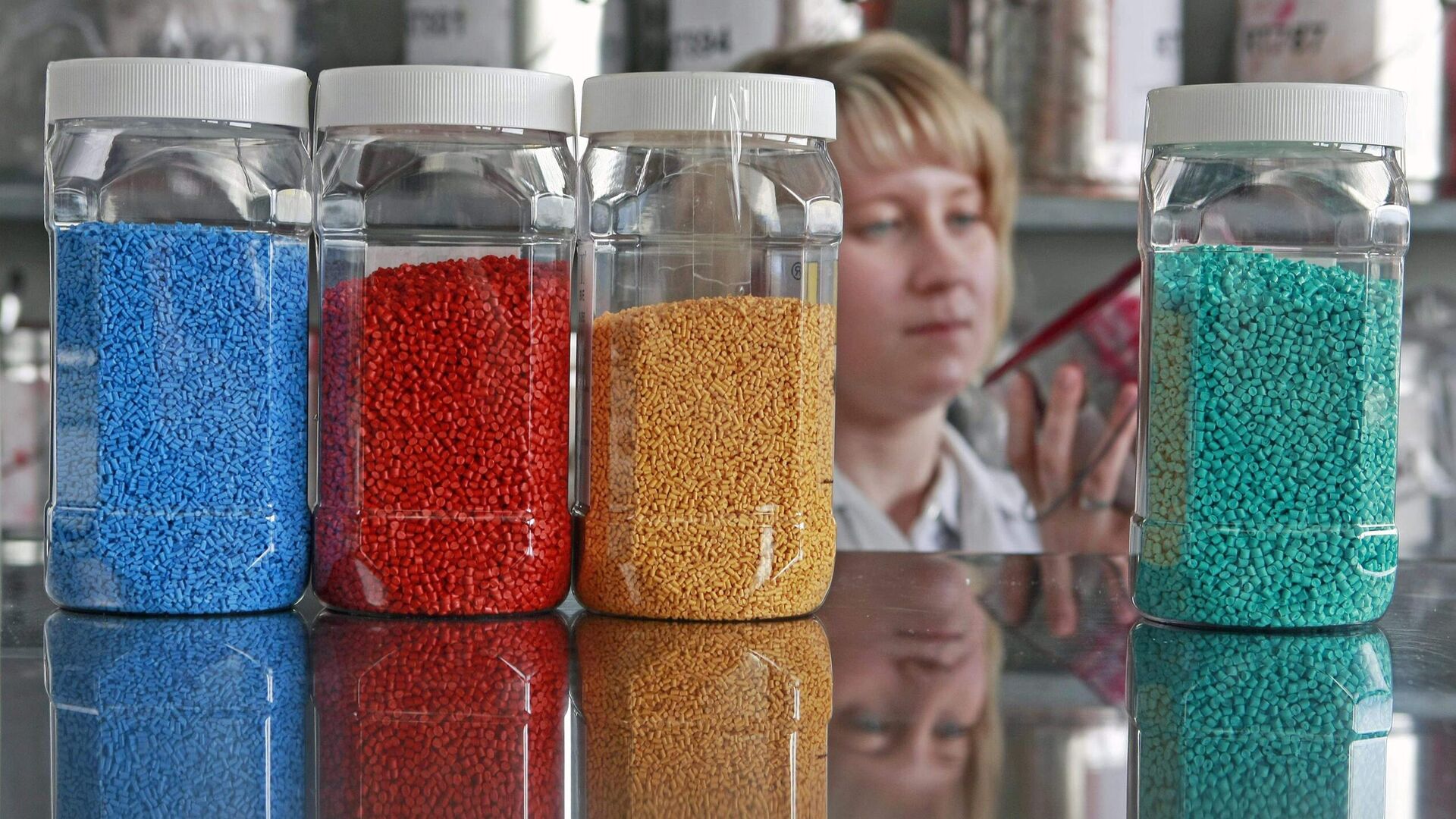https://sputnikglobe.com/20220328/swedish-researchers-learn-to-turn-faeces-into-eco-friendly-bioplastic-1094251549.html
Swedish Researchers Learn to Turn Faeces Into Eco-Friendly Bioplastic
Swedish Researchers Learn to Turn Faeces Into Eco-Friendly Bioplastic
Sputnik International
Despite the general public's aversion, waste that is flushed down the toilet contains useful bacteria that can help in the creation of bioplastics, which are... 28.03.2022, Sputnik International
2022-03-28T06:44+0000
2022-03-28T06:44+0000
2022-08-06T13:32+0000
science & tech
sweden
newsfeed
https://cdn1.img.sputnikglobe.com/img/07e6/03/1c/1094253122_0:0:2541:1429_1920x0_80_0_0_ac1cb607e4e4972c43f0b140bbac13b5.jpg
Researchers at the Royal Swedish Institute of Technology (KTH) have found a clever use for sewage water. Bacteria found in wastewater store energy in the form of chemicals that can be extracted for more efficient bioplastic production.The sewage water is subsequently purified, and the remaining sludge can be used to make new products. Furthermore, the bacteria in the slag have a unique property that can be taken advantage of."We can use wastewater from households and industries to produce bioplastics with the help of our good friends the bacteria", Kasra Khatami Mashhadi explained, suggesting it may make production more efficient.Plastic is used in endless variations, and its properties can be adapted to suit a specific product. However, nearly all plastic is made from oil, which is a finite resource. Moreover, when it is discarded and ends up in nature, it takes a long time for it to decompose and the microplastics that are formed can be harmful to the environment.By contrast, bioplastics made from organic materials created from residual products such as wastewater or food waste are less dangerous to nature."It takes over 300 years for ordinary plastic to break down. But bioplastics are broken down in the environment in two months and do no harm to the environment", Kasra Khatami Mashhadi explained.According to her, by using sludge products additional resources can be saved and the bioplastic can be used to produce everything from packaging to medical materials."Instead of throwing away the sludge, we recycle it and try to get as much as possible out of it. It is both cheap material and available in large quantities all over the world", she concluded.So far, only small-scale production is available, but Kasra Khatami Mashhadi believes that manufacturing will ultimately be scaled up.Let's stay in touch no matter what! Follow our Telegram channel to get all the latest news: https://t.me/sputniknewsus
sweden
Sputnik International
feedback@sputniknews.com
+74956456601
MIA „Rossiya Segodnya“
2022
News
en_EN
Sputnik International
feedback@sputniknews.com
+74956456601
MIA „Rossiya Segodnya“
Sputnik International
feedback@sputniknews.com
+74956456601
MIA „Rossiya Segodnya“
science & tech, sweden, newsfeed
science & tech, sweden, newsfeed
Swedish Researchers Learn to Turn Faeces Into Eco-Friendly Bioplastic
06:44 GMT 28.03.2022 (Updated: 13:32 GMT 06.08.2022) Despite the general public's aversion, waste that is flushed down the toilet contains useful bacteria that can help in the creation of bioplastics, which are considerably less harmful for the environment and are decomposed within months when discarded.
Researchers at the Royal Swedish Institute of Technology (KTH) have found a clever use for sewage water. Bacteria found in wastewater store energy in the form of chemicals that can be extracted for more efficient bioplastic production.
"Most people think of wastewater as something that stinks and is bad, but we use it to create usable materials", Kasra Khatami Mashhadi of KTH told national broadcaster SVT.
The sewage water is subsequently purified, and the remaining sludge can be used to make new products. Furthermore, the bacteria in the slag have a unique property that can be taken advantage of.
"We can use wastewater from households and industries to produce bioplastics with the help of our good friends the bacteria", Kasra Khatami Mashhadi explained, suggesting it may make production more efficient.
Plastic is used in endless variations, and its properties can be adapted to suit a specific product. However, nearly all plastic is made from oil, which is a finite resource. Moreover, when it is discarded and ends up in nature, it takes a long time for it to decompose and the microplastics that are formed can be harmful to the environment.
By contrast, bioplastics made from organic materials created from residual products such as wastewater or food waste are less dangerous to nature.
"It takes over 300 years for ordinary plastic to break down. But bioplastics are broken down in the environment in two months and do no harm to the environment", Kasra Khatami Mashhadi explained.
According to her, by using sludge products additional resources can be saved and the bioplastic can be used to produce everything from packaging to medical materials.
"Instead of throwing away the sludge, we recycle it and try to get as much as possible out of it. It is both cheap material and available in large quantities all over the world", she concluded.
So far, only small-scale production is available, but Kasra Khatami Mashhadi believes that manufacturing will ultimately be scaled up.
Let's stay in touch no matter what! Follow our Telegram channel to get all the latest news: https://t.me/sputniknewsus 
